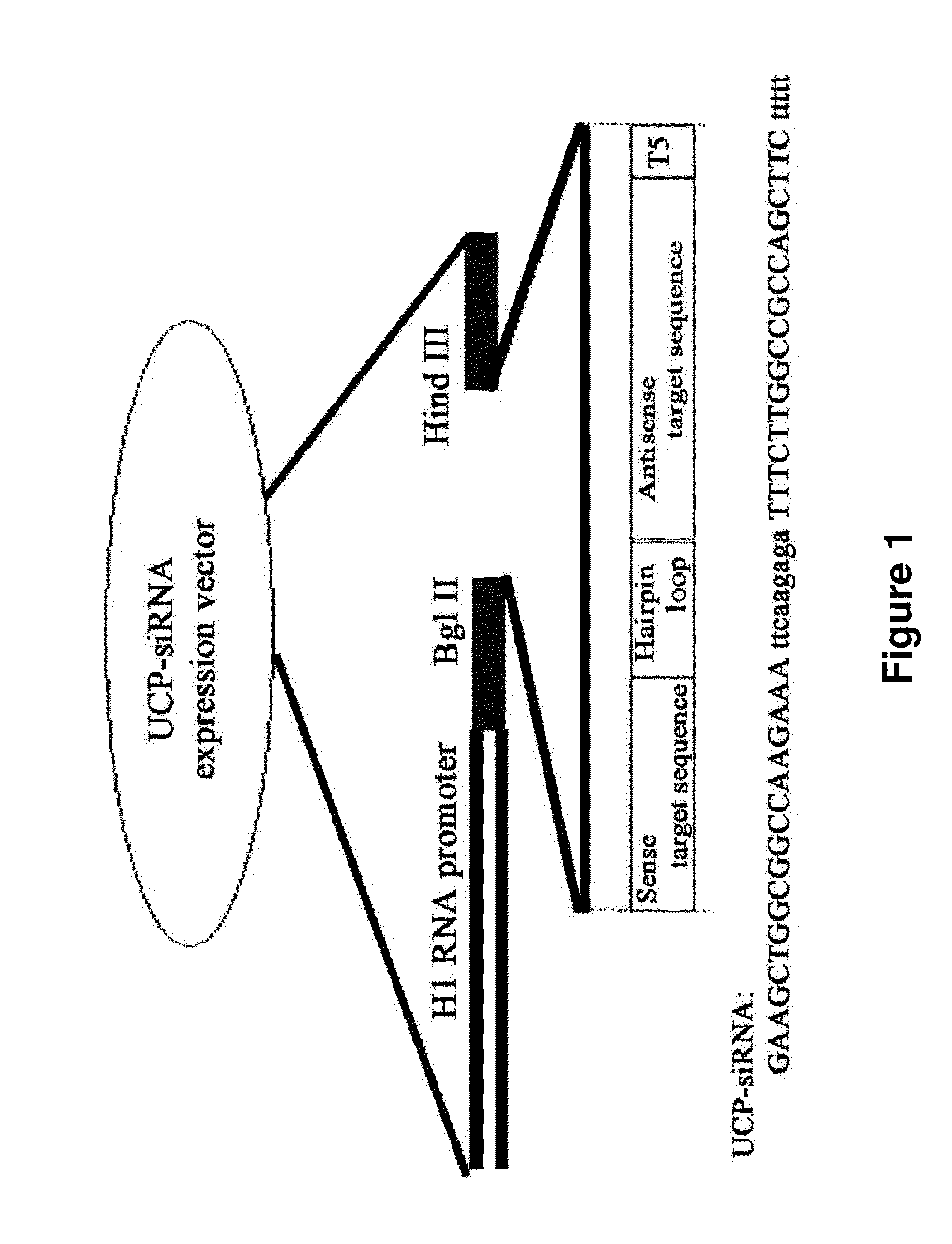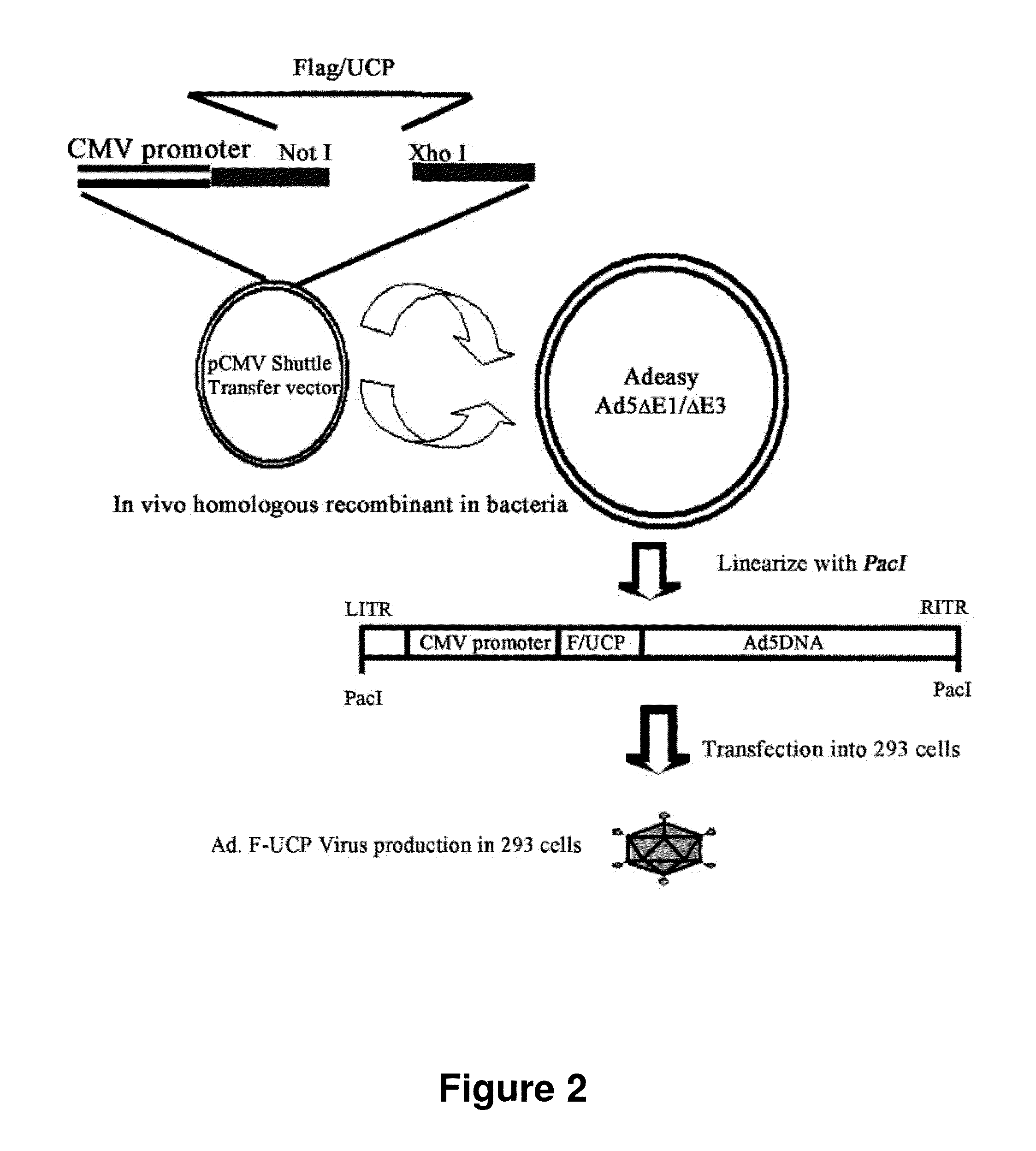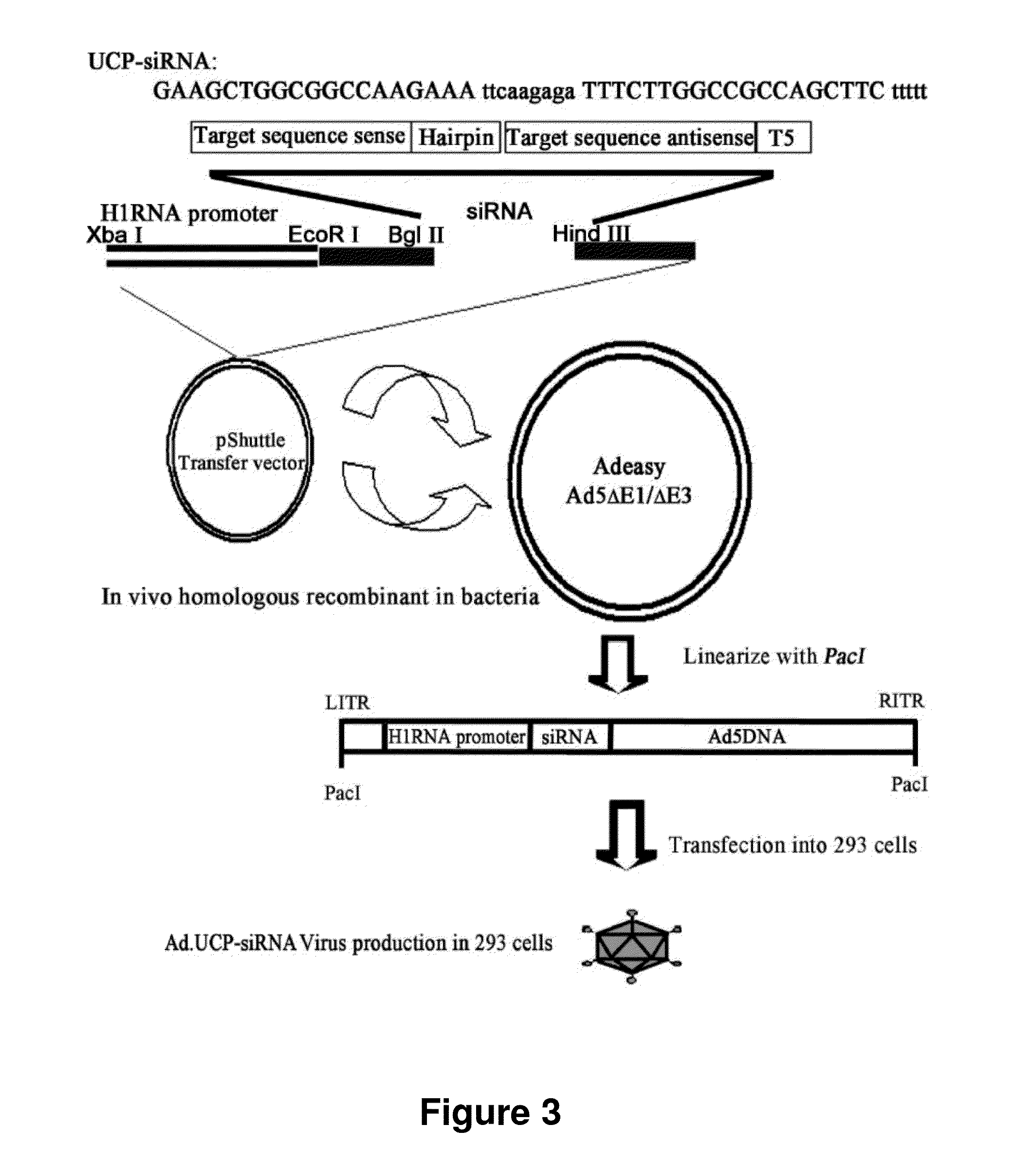Method for Therapeutic Angiogenesis
a technology of angiogenesis and vegf, which is applied in the field of e2epf ucpvhl interaction, can solve the problems of unreported underlying mechanisms of angiogenesis promotion by increasing vegf expression induced by ucp mediated hif-1 stabilization, unreported intracellular functions and the involvement of ucp in tumorigenesis, and unreported tumor progression, and achieves a ucp content-dependen
- Summary
- Abstract
- Description
- Claims
- Application Information
AI Technical Summary
Benefits of technology
Problems solved by technology
Method used
Image
Examples
example 1
Intracellular Interaction Between UCP and VHL
[0154]To examine the interaction between UCP and VHL, an expression vector was constructed as follows. PCR was performed by using the UCP containing expression vector (pDEST™27GST-UCP) provided by The Center for Functional Analysis of Human Genome (Korea Research Institute of Bioscience and Biotechnology) as a template, followed by cloning of the resultant fragments into pCMV Tag1 (Stratagene) by using NotI / BamHI to construct Flag-UCP. PCR was performed as follows; predenaturation of the template with a primer set (SEQ. ID. NO: 1, Sense: 5′-tccgcggccgcatgaactccaacgtggagaa-3′, SEQ. ID. NO: 2, Antisense: 5′-accggatccctacagccgccgcagcgccc-3′) using a DNA polymerase (pfu polymerase (Vent), New England Bioscience, USA) at 94° C. for 4 minutes, denaturation at 94° C. for 1 minute, annealing at 55° C. for 1 minute, polymerization at 72° C. for 1 minute, 30 cycles from denaturation to polymerization, and final extension at 72° C. for 5 minutes. GS...
example 2
The Effect of UCP on VHL Protein Stability
[0163]The decrease of endogenous VHL protein level by UCP might result from ubiquitin-mediated proteolysis of VHL and might result in stabilization of HIF-1α. To prove this hypothesis, following constructs were prepared.
[0164]HRE-luc reporter gene was generated by inserting 5× HREs derived from the VEGF promoter into pGL3-luciferase vector (Promega) containing SV40 TATA (Mol. Ther. 10, 938-949, 2004).
[0165]A mutant form of UCP ‘Flag-UCPm’ was constructed by replacing the active region of Flag-UCP, the 95th cysteine, with serine by PCR. PCR was performed as follows; predenaturation of the template with a primer set (SEQ. ID. NO: 3, internal sense: 5′-AAA GGC GAG ATC AGC GTC AAC GTG CTC AAG-3′, SEQ. ID. NO: 4, internal antisense: 5′-CTT GAG CAC GTT GAC GCT GAT CTC GCC ATT-3′) using a DNA polymerase (pfu polymerase (Vent), New England Bioscience, USA) at 94° C. for 4 minutes, denaturation at 94° C. for 1 minute, annealing at 55° C. for 1 minute...
example 3
Multiubiquitination of VHL by UCP
[0175]To verify that the decrease of endogenous VHL by UCP was attributed to ubiqitin-mediated proteolysis, multiubiquitination of VHL was investigated. In vivo and in vitro VHL ubiquitination assays were performed. UCP and UCPm were cloned into pGEX4T-1 vector by using EcoR1 / NotI, which were expressed in E. coli DH5α. GST-UCP and GST-UCPm were purified by glutathione-sepharose resin. Flag-VHL expression vector was transfected into HEK293 cells and expressed therein, followed by Flag-agarose gel immunoprecipitation to isolate Flag-VHL only.
In Vivo VHL Ubiquitination by UCP
[0176]HEK293 cells were transfected with His-Ub expression vector by calcium phosphate method and cultured. The cells were equally distributed in 100 mm culture dishes and cultured, to which the expression vectors indicated in FIG. 13 were transfected. 12 hours before harvest, the cells were treated with 10 μM of MG132. The harvested cells were lysed in a denatured lysis buffer (50...
PUM
| Property | Measurement | Unit |
|---|---|---|
| temperature | aaaaa | aaaaa |
| concentration | aaaaa | aaaaa |
| concentration | aaaaa | aaaaa |
Abstract
Description
Claims
Application Information
 Login to View More
Login to View More - R&D
- Intellectual Property
- Life Sciences
- Materials
- Tech Scout
- Unparalleled Data Quality
- Higher Quality Content
- 60% Fewer Hallucinations
Browse by: Latest US Patents, China's latest patents, Technical Efficacy Thesaurus, Application Domain, Technology Topic, Popular Technical Reports.
© 2025 PatSnap. All rights reserved.Legal|Privacy policy|Modern Slavery Act Transparency Statement|Sitemap|About US| Contact US: help@patsnap.com



